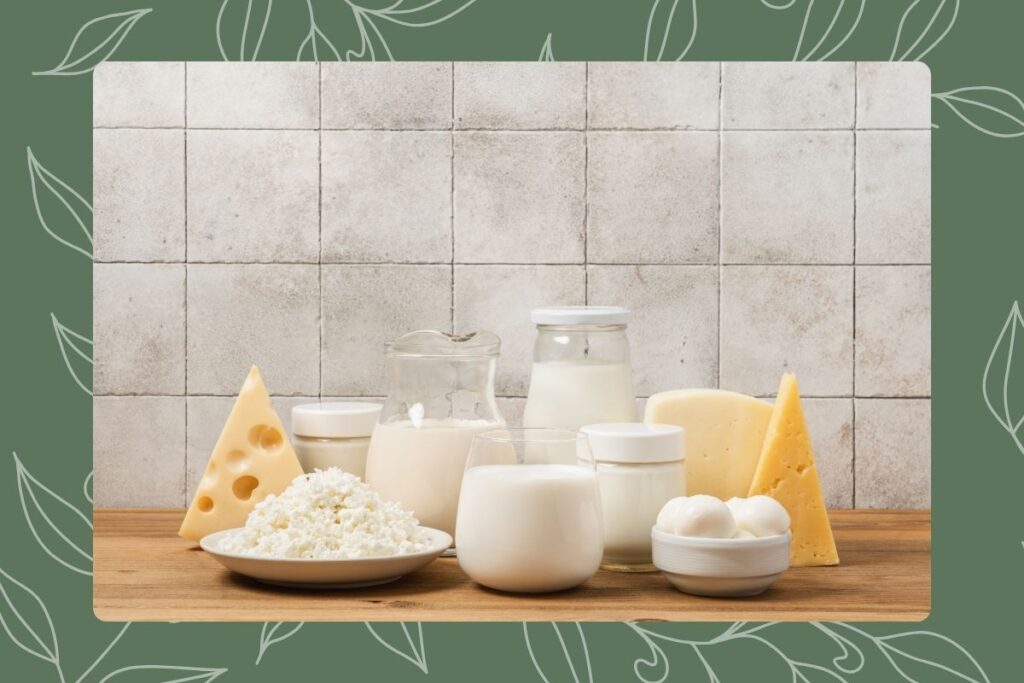Dairy and Your Skin: Understanding the Connection

Key Takeaways
- Dairy’s role in skin health is debated, with some evidence linking it to acne due to hormones that may increase sebum production.
- Individual responses to dairy vary; some may experience skin improvements by eliminating dairy, especially those with sensitivities.
- Alternatives like almond, soy, and oat milk offer similar nutritional benefits without the hormonal effects of cow’s milk, potentially benefiting skin health.
Dairy products are integral to many diets worldwide and have recently come under scrutiny regarding their impact on skin health. As people become more conscious of their dietary choices, understanding the potential link between dairy consumption and skin conditions such as acne is increasingly important. This blog aims to clarify the relationship between dairy and skin health, providing insights into why this topic garners significant attention.
The Dairy Debate
Dairy products such as milk, cheese, and yogurt have been consumed by humans for thousands of years. Historically, dairy has been considered nutritious and essential for growth and bone health. However, anecdotal evidence and some scientific studies have suggested that dairy may also be a culprit in triggering skin conditions such as acne.
How Dairy Might Affect the Skin
Dairy cows are often treated with hormones to boost milk production, and these hormones, particularly the insulin-like growth factor 1 (IGF-1), can be present in the milk consumed by humans. IGF-1, structurally similar to insulin, is implicated in influencing skin conditions by promoting the growth of keratinocytes (skin cells) and increasing sebum production. Elevated levels of IGF-1 due to genetic breeding and hormonal treatments in modern dairy farming can exacerbate sebum production and contribute to clogged pores and acne outbreaks.
Dairy Sensitivity and Skin Reactions
Lactose intolerance and dairy allergy are conditions that can exacerbate skin problems, both resulting from different mechanisms. Lactose intolerance, caused by an inability to digest lactose due to a deficiency in the lactase enzyme, does not directly affect the skin but may cause systemic inflammation that manifests externally. On the other hand, a dairy allergy triggers an immune reaction to milk proteins, leading to inflammation that can visibly impact skin health. Anecdotal evidence and some clinical studies suggest that eliminating dairy may improve skin conditions for those with either lactose intolerance or a dairy allergy, indicating an indirect connection between dairy consumption and skin health.
Alternatives to Dairy
Given the concerns related to dairy consumption and skin health, many people are turning to dairy-free alternatives that offer similar nutritional benefits without the hormonal effects of cow’s milk:
- Almond Milk: Low in calories and enriched with vitamins D and E, it’s a skin-friendly option that doesn’t contribute to excess sebum production.
- Soy Milk: High in protein and often fortified with calcium, making it a robust alternative for those needing more protein in their diets.
- Oat Milk: Known for its beta-glucans, which can help moisturize the skin and have anti-inflammatory properties.
These alternatives are not only similar in nutritional content but often exceed the vitamin and mineral levels found in traditional dairy products, providing a viable option for those concerned about skin health and dietary impacts.
Contrasting Research
While some studies highlight a link between dairy and skin issues such as acne, others find this connection to be overstated or inconclusive. Research challenging the dairy-acne hypothesis often points to several other factors that could have more significant roles, including:
- Genetic predispositions: Individual genetic differences can determine how one’s skin reacts to certain foods, including dairy.
- Overall diet quality: A diet high in sugars and refined carbohydrates may contribute more to skin problems than dairy itself.
- Hormonal balance: Factors other than dairy that affect hormonal levels, such as stress and other foods, can also influence skin health.
- Environmental influences: External factors like pollution and hygiene practices can impact skin conditions and complicate the relationship between diet and skin health.
These studies suggest a multifactorial approach to understanding skin health, emphasizing that while dairy may play a role for some individuals, it is not a universal trigger for skin issues.
Dermatological Recommendations
Dermatologists often recommend a trial period of reducing or eliminating dairy to see if the skin’s condition improves, especially for those suffering from persistent acne.
It is crucial to consult with a dermatologist or a dietitian before making significant dietary changes. They can provide guidance based on individual health needs and skin conditions, ensuring that nutritional balance is maintained.
Conclusion
The link between dairy products and skin health remains a topic of debate with evidence on both sides. While there is some scientific backing for the impact of dairy on conditions like acne, individual responses can vary greatly. Those concerned about the effects of dairy on their skin should consider experimenting with reduced dairy intake under professional guidance and observing the results.
FAQs
1. Does dairy cause acne?
Dairy is suspected to contribute to acne due to hormones present in milk, which may increase sebum production and lead to clogged pores. However, responses vary by individual, and not everyone who consumes dairy will experience acne.
2. Can cutting out dairy improve skin health?
Many people report improvements in their skin condition after eliminating dairy from their diets, particularly those with lactose intolerance or dairy allergies. However, the impact can vary, and it’s advisable to consult with a healthcare provider.
3. What are the best dairy alternatives for skin health?
Non-dairy milks like almond, soy, and oat milk are popular alternatives that may be less likely to affect your skin. These options are also often enriched with vitamins and minerals to provide nutritional benefits similar to those of cow’s milk.
